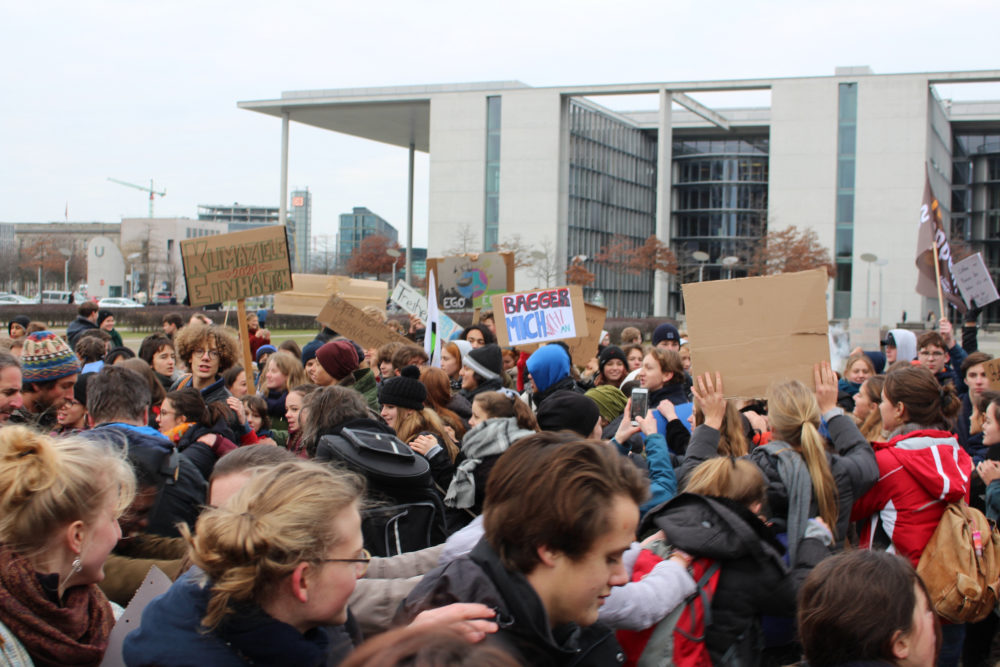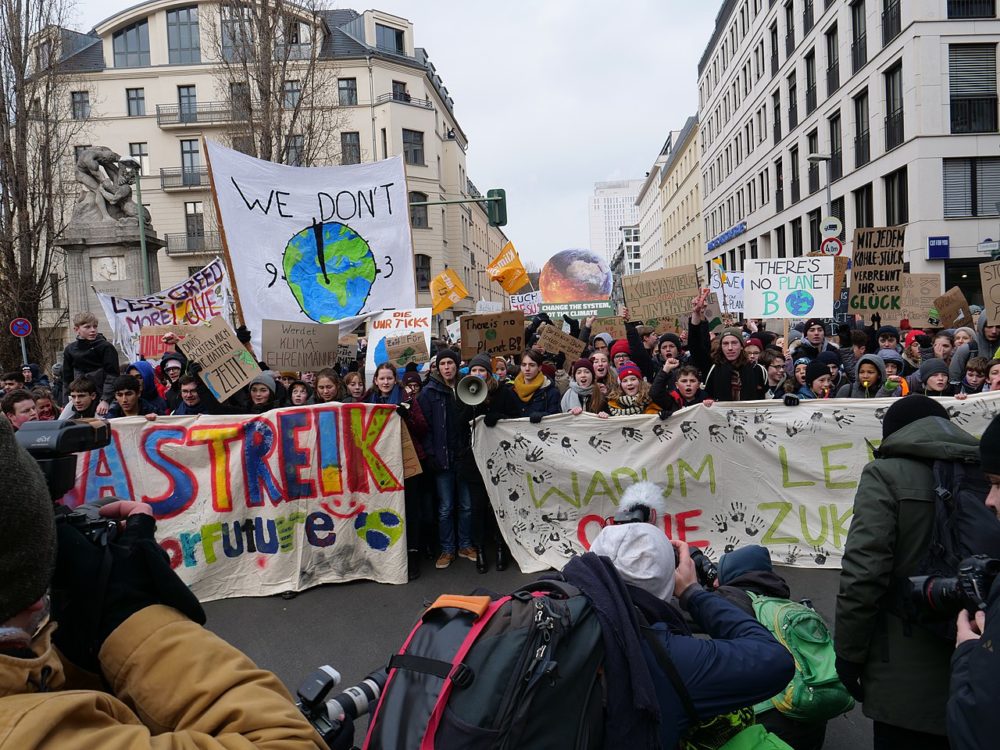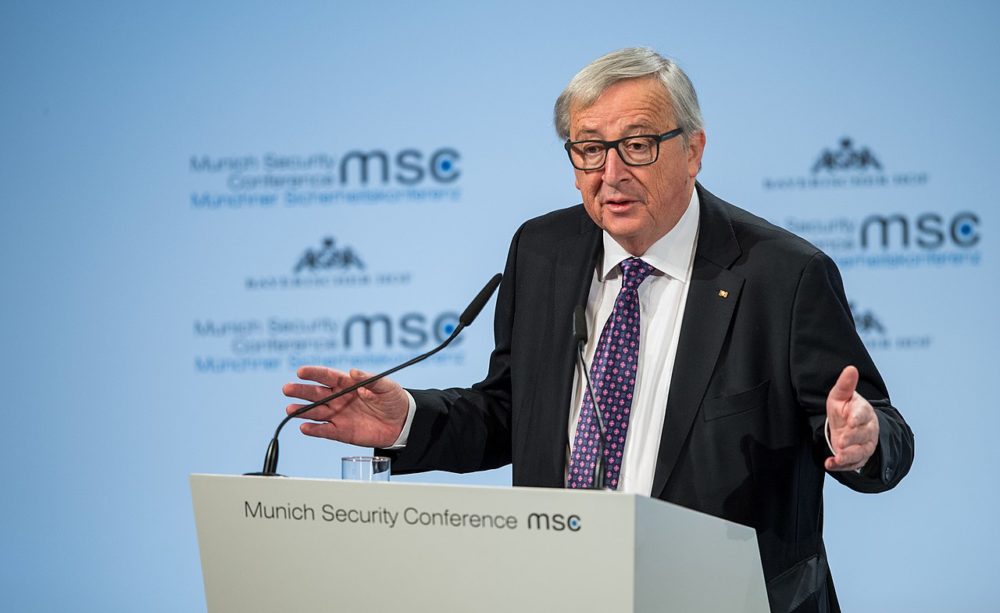
By Justin Hsieh, Staff Writer
Young activists around the world are calling for a global school strike on Friday, March 15, to protest governments’ inaction in combating climate change. Over 900 events have been planned to take place across 82 countries, coordinated by a loosely organized group of student leaders from several countries.
“Our generation grew up with the climate crisis and we will have to deal with it for the rest of our lives,” said the students in an open letter published by the Guardian. “Despite that fact, most of us are not included in the local and global decision-making process. We are the voiceless future of humanity. We will no longer accept this injustice… On 15 March, we will protest on every continent.”
The worldwide strike follows an ongoing series of strikes around the world, particularly in Europe, where students have been skipping days of school for weeks to protest. So far, there have been major strikes in the United Kingdom, Australia, Belgium, France, Germany, Ireland, Uganda, Thailand, Colombia and Poland. More than 30,000 Belgian students skipped school in late January, and in February, 15,000 British students walked out of schools to demand action.
“[Adults] are treating us like we are doing something really wrong,” London student Bonnie Morely told the New York Times before the February strike. “The future of our planet is looking really bleak, and all the politicians are asleep at the wheel. We have to wake them up, and I think thousands of kids on the streets will do just that.”

Many of the student groups leading the protests in their countries have been inspired by the activism of 16-year-old Swedish student Greta Thunberg, who has become internationally famous since she began missing school in August to protest for climate action in front of the Swedish parliament building.
Thunberg was moved to action by the release of a major report from the United Nations’ Intergovernmental Panel on Climate Change in October, which found that the world has until 2030 to drastically reduce its carbon emissions in order to avoid severe consequences. The report’s authors also said that while the rapid transformation of the world economy needed to avert disaster is technically feasible, it may be politically unlikely given the massive government involvement needed to achieve it.
To urge her government and others to take this kind of action, Thunberg has continued to spend her Fridays protesting, a move that has birthed the #FridaysForFuture movement around which thousands of students have rallied globally. Her influence has grown immensely since her first strike, and in December, she spoke to diplomats from around the world gathered for the 24th United Nations Climate Change Conference (COP24) in Katowice, Poland.

“You say you love your children above all else – and yet you are stealing their future in front of their very eyes,” Thunberg told the negotiators as they struggled through political gridlock. “Until you start focusing on what needs to be done rather than what is politically possible, there is no hope. We cannot solve a crisis without treating it as a crisis.”
In January, Thunberg spoke at the 2019 World Economic Forum Annual Meeting in Davos, Switzerland, telling world leaders “I want you to act as if our house is on fire. Because it is.” In February, she prompted European Commission President Jean-Claude Juncker to commit to spending 1.13 trillion Euros to combat climate change between 2021-2027.

Thunberg’s success has served as an example for other young activists, including 13-year-old Alexandria Villasenor, co-founder of the Youth Climate Strike US organization that is spearheading the March 15 protest in the United States. Villasenor has been sitting with signs in front of the United Nations building in Manhattan every Friday since mid-December, including during the polar vortex that struck New York City in February.
“If I don’t have a future, why go to school? Why go to school if we’re going to be too focused on running from disasters? Striking has to be the way,” said Villasenor in February.
Not everyone has been receptive to the calls of young people like Thunberg and Villasenor. In response to plans for school strikes in Australia and Hong Kong, Australian Education Minister Rob Stokes and the Hong Kong Education Bureau both both expressed their opposition to the strikes. UK Prime Minister Theresa May said that “disruption increases teachers’ workloads and wastes lesson time,” and the UK National Association of Head Teachers said that it “does not condone children and young people missing school as a consequence of supporting action.”
Thunberg and her supporters have remained unfazed, however. Thunberg Tweeted back at Stokes that his statement “belongs in a museum,” and told the Hong Kong Education Bureau that “It doesn’t help if we have to fight the adults too.” She also responded to May’s statement, saying that “political leaders have wasted 30 yrs of inaction. And that is slightly worse.”
As students march on to the global strike this Friday, they have gained the support of many adults, as well. In February, British Labour Party Leader Jeremy Corbyn and UK Energy Minister both expressed their support for students striking.
“Climate change is the greatest threat that we all face but it is the school kids of today whose futures are most on the line,” tweeted Corbyn. “They are right to feel let down by the generation before them and it’s inspiring to see them making their voice heard today. #SchoolStrike4Climate.”






